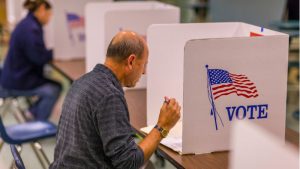On their second day in charge of the House, Democrats debuted H.R. 1, the For The People Act, which features a wide range of election security and modernization measures, including cybersecurity standards for voting machines, an election security bug bounty program, and a requirement for online voter registration.
Today, the House Energy and Commerce Subcommittee on Communications and Technology took a deep dive into the RAY BAUM’S Act and examined how the legislation is helping to bridge the digital divide in the United States.
The Senate Rules & Administration Committee yesterday advanced two of President Trump’s nominations to the Election Assistance Commission.
Sens. Amy Klobuchar, D-Minn., and Dan Sullivan, R-Alaska, on Friday introduced the Global Electoral Exchange Act, which would task the State Department with creating an international election security information sharing program.
In a letter released Thursday, Rep. Jerrold Nadler, D-N.Y., questioned the Trump administration’s commitment to election security and pressed administration officials to communicate more clearly with Congress about the issue.
Sen. Jerry Moran, R-Kan., highlighted the benefits of broadband services for rural areas, and with Democratic control of the House coming in January, offered an optimistic view on the prospects of bipartisan broadband expansion legislation.
A bipartisan group of three senators–Sens. Chris Van Hollen, D-Md., Susan Collins, R-Maine, and Ben Cardin, D-Md.–last week introduced Protect Our Elections Act, which aims “to amend the Help America Vote Act of 2002 to require states to take steps to ensure domestic ownership and control of election service providers.”
The Senate Commerce, Science, and Transportation Committee heard testimony today detailing the workings of data privacy laws in Europe and California–specifically the European Union’s General Data Protection Regulation (GDPR) and the California Consumer Privacy Act (CCPA)–amid a growing groundswell for Congress to work on a national data privacy law for the U.S.
A group of 24 technology organizations banded together to urge the Senate to pass S. 3157, the STREAMLINE Small Cell Deployment Act. In a letter released today, the group said the legislation “will modernize wireless infrastructure regulations for next-generation 5G wireless networks” and will unlock “significant consumer and economic benefits.”
Sen. James Lankford, R-Okla., told Politico to expect an updated version of the Secure Elections Act to hit the Senate floor next month.











